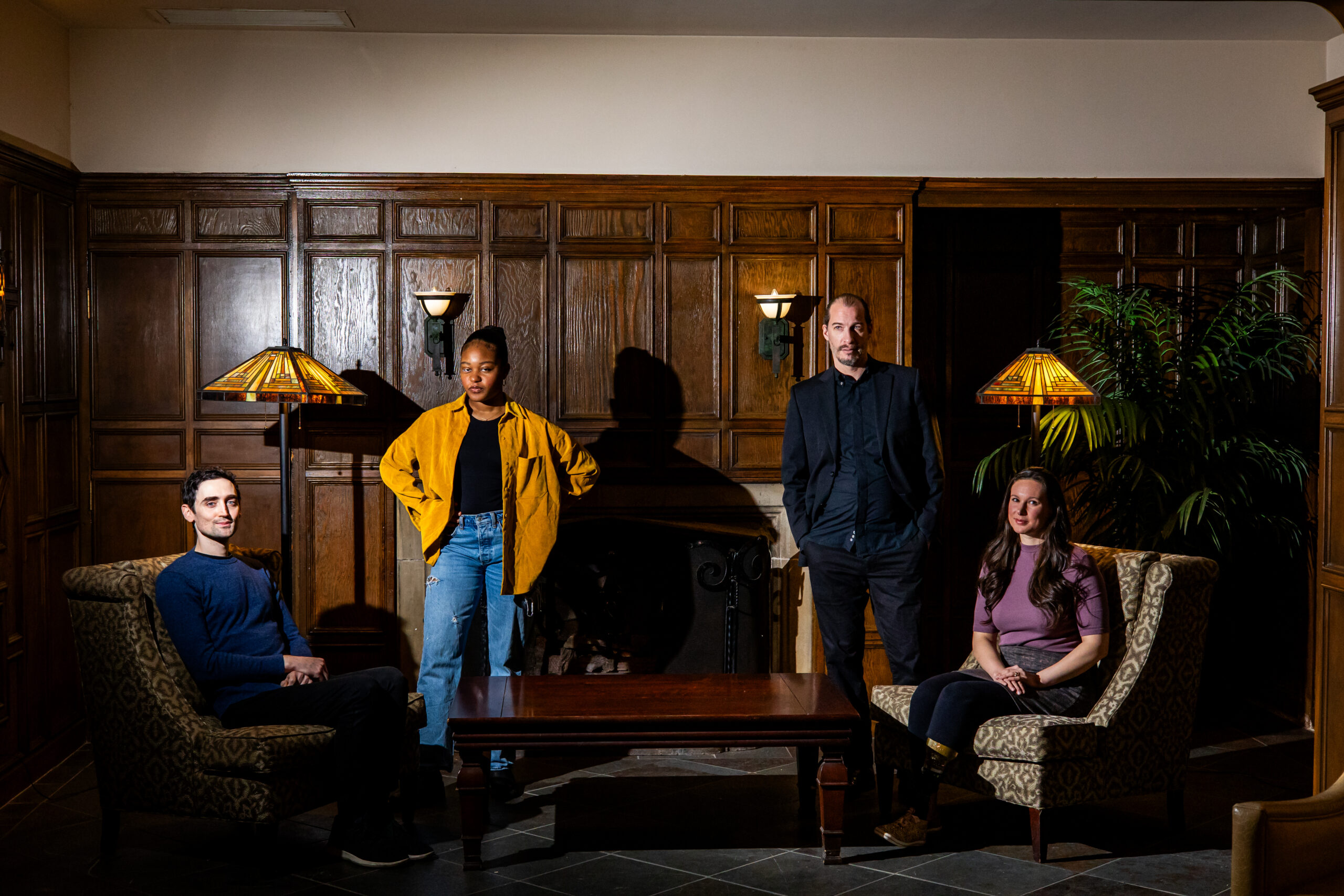Page planned the discussion as part of the show’s rehearsal process, and brought together the cast, crew, disability advocates, caregivers, social workers, and policymakers. It was a groundbreaking approach, moving beyond post-show discussions to integrate community voices directly into the artistic process.
Our conversation opened with the rehearsing of lines for a powerful moment from the play, where a character, Jess, played by Cianna Castro refers to another character, John, played by actor Christian Prentice as “differently abled” to refer to his disability, cerebral palsy. John’s immediate rejection of this term set the tone for our discussion, emphasizing the importance of direct and respectful language in addressing disabilities. As one participant, Becky Bradbeer, noted, “Words matter. ‘Differently abled’ feels like a gloss-over. Call it what it is – disability doesn’t mean inability.”

We delved into how people with disabilities perceive themselves and the labels used to describe them. A consensus emerged against euphemistic terms like “differently abled,” which feel patronizing. “These terms are often created by non-disabled people to feel more comfortable… It’s about being direct, honest, and respectful,” said Katie Samson, Director of Education and Outreach at ArtReach. She also serves as an advisor to the production.
The discussion, set at the Bluver Theatre on Hicks Street in the south of Center City Philly, unveiled personal stories of adaptation and resilience, highlighting the diverse experiences within the disabled community. Rachel Handler, playing Ani in the play, shared, “Every conversation with caregivers and people with disabilities feels like opening doors in my mind. It’s about seeing what’s in the silences, the unspoken parts of our lives.” Rachel, is disabled and expressed gratitude for the playwright including the casting of disabled actors in her script notes.
The role of caregivers was also a significant theme of the conversation. Aisha Talley, a licensed practical nurse, reflected, “We often see disabled individuals only for their diagnoses, forgetting they are full human beings with feelings and thoughts.”
Jeffrey Page, the director, spoke about the importance of this conversation as part of the artistic process. “It’s about infusing empathy and understanding into every aspect of the play, from character development to set design,” he said.
The impact of disability on identity and relationships was also discussed. Christian Prentice, playing John, remarked, “This conversation showed that everyone, caregivers and disabled alike, have overcome so much. It’s about recognizing our shared humanity.”
As the facilitator, I observed how the conversation challenged and expanded our understanding of disability, caregiving, and the power of inclusive storytelling. It was a reminder that theatre can be a powerful medium for social change, offering insights into experiences often marginalized. We truly held space for people to take their time to speak and be heard.
“The Cost of Living” is an invitation to understand and empathize, leading us to look beyond our preconceptions and engage with the complexities of humanity at the intersection of race, class, gender, and more.
PTC’s Cost of Living opens on February 7 and has an estimated runtime of 1 hour and 40 minutes with no intermission. Subscriptions to the 2023-24 theater season at PTC and single-tickets for Cost of Living are currently available online, by phone at 215.985.0420×1, and at the Suzanne Roberts Theatre box office.















